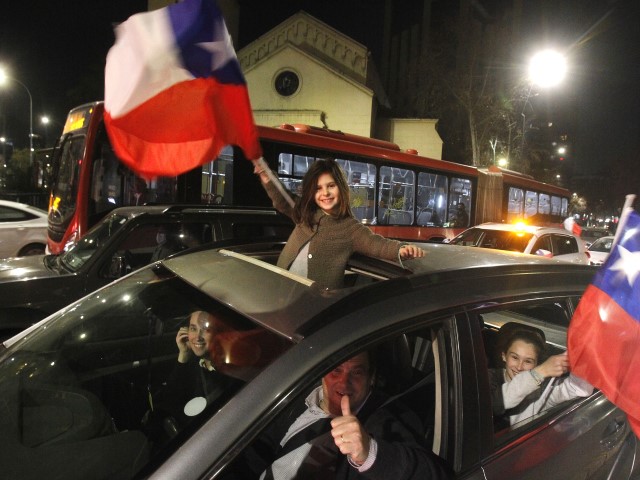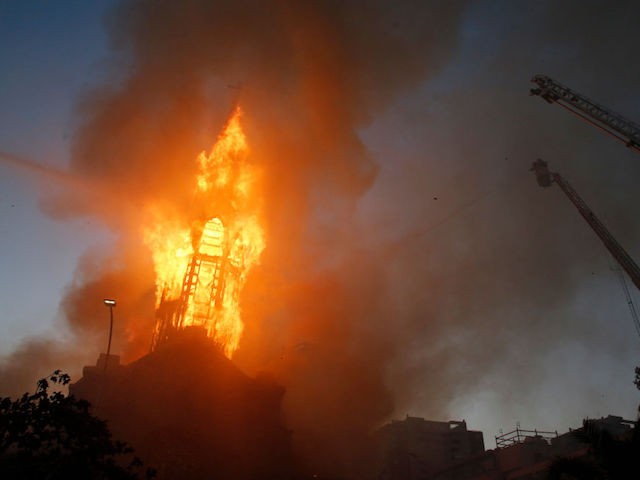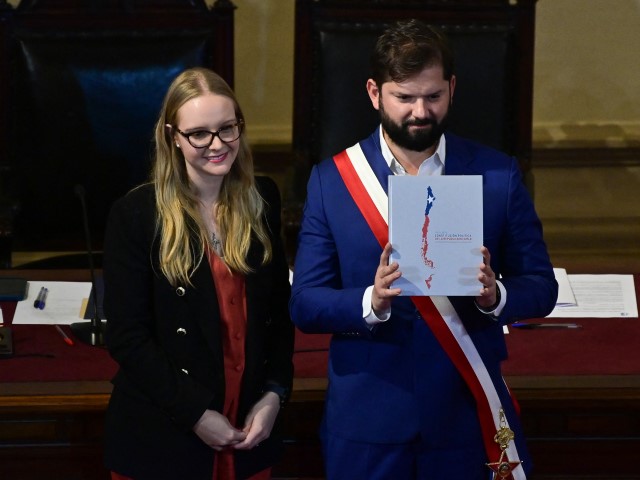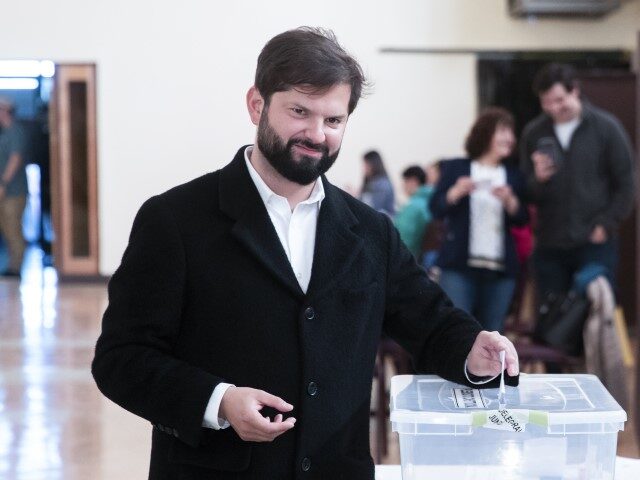Chileans voted against replacing their nation’s constitution for a second time in as many years on Sunday, rejecting a text drafted by a conservative constitutional congress and effectively ending attempts to modify the nation’s core legal document.
Radical leftists rioted throughout 2019 and 2020 to demand a replacement for what they branded “Pinochet’s constitution,” after the late military ruler. Despite being adopted during the Pinochet era, the constitution has been amended 31 times in 43 years, meaning it has deviated significantly from its original version. The constitution was adopted in 1980.
Leftist President Gabriel Boric announced on Sunday that his administration will not attempt a third constitutional process and will keep “Pinochet’s constitution.”
Chile’s two failed constitutional processes, its five corresponding elections, and all related expenses incurred over the past four years reportedly amounted to 150 billion Chilean pesos ($172,5 million).
With 99.97 percent of the votes counted at press time, Chile’s Electoral Service indicated that 55.76 percent of Chileans voted on Sunday to keep the nation’s current constitution, versus 44.24 percent who cast a vote in favor of replacing it. Over 13 million votes were counted during Sunday’s electoral event.
A radical leftist constitutional proposal in 2022 similarly failed to pass in September 2022 after 61.86 percent of the electorate voted against it.

Demonstrators against a proposed new constitution celebrate after the results of the referendum to approve or reject the current constitution imposed during the dictatorship of Augusto Pinochet on September 4, 2022, in Santiago, Chile. The rejection of the new draft won over the approval after getting 62% of the votes. (Jonnathan Oyarzun/Getty)
The now-closed lengthy constitutional process first started as the ultimate demand by a wave of leftist rioters who took the streets in 2019 to protest a proposed four-percent public transit fare hike under “center-right” then-President Sebastián Piñera. Piñera initiated a lengthy constitutional process in 2020 passed down to Boric.

La Asuncion church burns during a protest on October 18, 2020, in Santiago, Chile. A series of protests and social unrest arose after a subway fare increase. It developed in a movement demanding improvements in basic services, fair prices, and benefits including pensions, public health, and education. As a result, Chile will hold a referendum next Sunday to to decide whether or not to modify the Pinochet-era constituion. (Marcelo Hernandez/Getty)
Following the failure of the “progressive” constitution in 2022, Boric held elections for another constitutional congress, which spectacularly backfired on the left as a majority conservative council was elected in March to write the new constitution. The final draft of the now-failed conservative constitutional proposal was formally presented in November.

Chile’s President Gabriel Boric (R) receives the text of the proposed new Constitution from the president of the Constitutional Council, Beatriz Hevia, during the closing ceremony of the Constitutional Process at the Hall of Honor of the National Congress in Santiago on November 7, 2023. Boric signed the decree that calls for a plebiscite on December 17, 2023, to vote on the new draft to replace the one inherited from Augusto Pinochet’s dictatorship (1973-1989). (Pablo VERA / AFP via Getty)
Boric, a vocal supporter of the violent leftist rioters’ demands for a new core legal text at the time, addressed Chileans on Sunday evening, declaring that his administration would not pursue a new constitutional process for the country, effectively turning the page — at least for the remainder of his four-year presidential term.
“The country became polarized, divided, and – regardless of this resounding result – the constitutional process failed to channel the hopes of having a new Constitution drafted for all,” Boric said. “Politics has remained in debt with the people of Chile. And this debt is paid by achieving the solutions that Chilean men and women need and demand that we achieve.”
The head of the Chilean Republican party and former conservative presidential candidate José Antonio Kast acknowledged the results on Sunday, praising the failed conservative initiative as “better” than the current constitution and “the safest way to put an end to the political, economic and social uncertainty.”
“We Republicans are different. When we win, we win and when we lose, we lose. And tonight, a great majority of Chileans have rejected the constitutional proposal that we promoted from the Constitutional Council,” Kast said. “And we recognize that defeat with great clarity and also with great humility.”
Kast stressed that although the conservative constitutional proposal failed, the Chilean government and the nation’s left have nothing to celebrate, as the four-year process caused significant damage to the country that, he claimed, would take decades to repair.
“My hope is that today a sad stage in our history will come to an end. That began with a criminal outbreak … and that ends tonight with a massive democratic demonstration that closes this cycle of constitutional discussion,” Kast said.
“This result is not significant for millions of Chileans because the Constitution is not going to change their lives from one day to the next, nor is it going to solve the urgencies they have,” he continued. “First thing tomorrow morning, the labor force in Chile will get up as they do every day to continue working to make ends meet.”
Lastly, Kast urged Boric to “work, govern and take charge of the urgent problems of Chileans.”
“It was clear that most Chileans are tired of these processes,” he said.
Christian K. Caruzo is a Venezuelan writer and documents life under socialism. You can follow him on Twitter here.

COMMENTS
Please let us know if you're having issues with commenting.